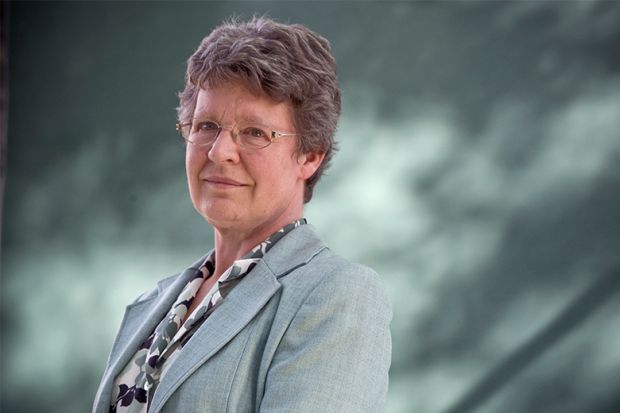A leading UK scientist is to donate her $3 million (£2.3 million) winnings from a major science prize towards helping women and under-represented minority students become physics researchers.
Dame Jocelyn Bell Burnell made the announcement after she was awarded a Breakthrough Prize for the discovery of radio pulsars, which was also the subject of the Nobel Prize in Physics in 1974, for which she is regarded as having been overlooked for. The Breakthrough award also recognises Dame Jocelyn’s scientific leadership.
The former president of the Institute of Physics, who helped to set up the Athena SWAN equality charter, said she had made the donation to the IOP because she believed under-represented groups and refugee students – who will also benefit from the gift – will bring new ideas to the field. The funds will be used to create new graduate scholarships.
“I don't want or need the money myself and it seemed to me that this was perhaps the best use I could put to it,” Dame Jocelyn told BBC News.
The donation by Dame Jocelyn, now a visiting professor at the University of Oxford, has reignited debate over whether she should have shared the Nobel prize in 1974, having been the first to observe and analyse the astronomical objects that led to the award. Her PhD supervisor at the University of Cambridge, Antony Hewish was, however, included in the Nobel citation.
Speaking on BBC Radio 4’s Today programme on 6 September, Dame Jocelyn said the decision was in keeping with the prize’s tradition.
“They didn’t often give Nobel prizes to students; they did sometimes, but not often… the prize was often seen as the senior man’s prize,” she said.
The $3 million prize, which was founded by the Russian technology billionaire Yuri Milner and sponsored by other internet moguls including Facebook founder Mark Zuckerberg and Google co-founder Sergey Brin, will be awarded during a ceremony in November.
Dame Julia Higgins, president of the Institute of Physics, described the award as an “excellent and hugely appropriate acknowledgement of Jocelyn’s work”.
“Her discovery of pulsars still stands as one of the most significant discoveries in physics and inspires scientists the world over,” Dame Julia said. “Her example of using insight and tenacity to make a discovery that rings through the ages stands her alongside the greatest of scientists.”
She said Dame Jocelyn had been “instrumental in making sure the issue of access to science by people from under-represented groups is at the very top of the science community’s agenda”.
Register to continue
Why register?
- Registration is free and only takes a moment
- Once registered, you can read 3 articles a month
- Sign up for our newsletter
Subscribe
Or subscribe for unlimited access to:
- Unlimited access to news, views, insights & reviews
- Digital editions
- Digital access to THE’s university and college rankings analysis
Already registered or a current subscriber? Login








